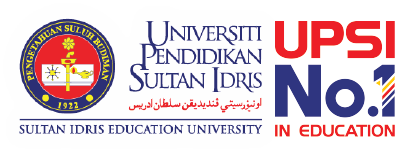A Measuring Relationship of Children Nutritional Status Toward Cognitive Development in Aceh
DOI:
https://doi.org/10.37134/jpak.vol11.2.6.2022Keywords:
Children's Nutritional Status, Cognitive Development, Early ChildhoodAbstract
Growth implies a change in body size, structure, and shape to be more related to physical changes. Growth can be interpreted as a quantitative change, as a result of external or environmental influences. Factors that influence the growth and development of early childhood are genetic or hereditary. Cognitive ability is a whole individual to take purposeful actions, think rationally, and deal with the environment effectively.
The purpose of this study was to determine the relationship between children's nutritional status and early childhood cognitive development in Banda Aceh Municipality, Aceh Province, Indonesia.
A cross sectional study was conducted by using quantitative research method, with a total sample of 62 children age 4 to 6 years old. This research was aimed to determine if there is relationship between children nutritional toward children cognitive development and if there was a correlation between these two factors. The data were collected by using a questionnaire disseminated with a google form before a treatment is conducted toward samples. This research took place in Banda Aceh Municipality, Aceh Province, Indonesia.
The results of this study illustrate that 53.20% early childhood children in Banda Aceh Municipality were in normal nutritional status based on Z-score. 24.20 % of children is at fat level whereas 9.70% is at thin level and the rest is very thin at 6.50%. On the other hand, these children cognitive development showed that none are at good level and from 62 samples, there was 69.36 % is at moderate category, and 30.64 % is at poor category of cognitive development. From the calculation of P value of 0,204 with alfa score at 95 %, it showed that there was a positive relationship between children nutritional status toward their cognitive development.
Downloads
References
Soetjiningsih (2012). Konsep dasar tumbuh kembang anak. In: Ranuh IGNG, penyunting. tumbuh kembang anak. (Edisi 2). Jakarta: EGC.
Soetjiningsih. (2003). Perkembangan Anak dan Permasalahannya. Jakarta: EGC.
Soetjiningsih. 1998. Tumbuh Kembang Anak. Jakarta: EGC.
Solihin, R. D. M., Anwar, F. & Sukandar, D. (2013) Kaitan antara status gizi, perkembangan kognitif, dan perkembangan motorik pada anak usia prasekolah (relationship between nutritional status, cognitive development, and motor development in preschool children). Penelitian Gizi dan Makanan. The Journal of Nutrition and Food Research, 36(1), 62-72.
Monika, Lestari & Wilar, 2015. Faktor-Faktor yang Mempengaruhi Keterlambatan Perkembangan Anak Taman Kanak-kanak. Vol. 3 No. 1 (2015): Jurnal e-CliniC (eCl) https://ejournal.unsrat.ac.id/index.php/eclinic/article/view/6752
Pitriani, LD, 2021. Hubungan Status Gizi Dengan Perkembangan Kognitif Anak Usia 5 – 6 Tahun Di RA Hidayatul Insan Palangka Raya. Institut Agama Islam Negeri palangka Raya.
Direktorat Jenderal Bina Gizi dan Kesehatan Ibu & Anak. (2015). Pedoman Teknis Pemantauan Status Gizi. Kementerian Kesehatan RI. Jakarta. Indonesia.
Elnovriza, 2012. Hubungan Status Gizi dan Keikutsertaan dalam Layanan Tumbuh Kembang Terhadap Kemampuan Kognitif Anak Usia 2-5 Tahun di Padang. Jurnal Kesehatan Masyarakat Andalas 6 (2), 80-85 http://jurnal.fkm.unand.ac.id/index.php/jkma/article/view/94
Fikawati, S. (2017). Gizi Anak dan Remaja Ed.1 Cet.1. Depok: Rajawali Pers.
Rahman, U. (2009). Karakteristik Perkembangan Anak Usia Dini. Jurnal Lentera Pendidikan, 12(1), 46-57.
Khadijah. (2016). Pengembangan Kognitif Anak Usia Dini. Medan: Perdana Publishing
Khomsan, A. Anwar, F.Warsito, O. Hernawati N. 2013. Growth-cognitive-development-and-psychosocial-stimulation-of-preschool-children-in-poor-farmer-non-farmer-households.pdf. 2013; 325–337.
Klebanov, P. K., Brooks-Gun, J., & Duncan, G. J. (1994). Does Neighborhood and Family Poverty Affect Mother’s Parenting, Mental Health and Social Support. Journal of Marriage and the Family, 56 (2), 441–445. https://doi.org/10.2307/353111.
Elnovriza, D. dan R. Y. (2012). Hubungan Status Gizi Dan Keikutsertaan Dalam Layanan Tumbuh Kembang Terhadap Kemampuan. Jurnal Kesehatan Masyarakat, 6(2), 80–85.
Malik, A. A. (2013). “Ular Tangga Olahraga” Media Permainan Edukatif untuk Olahraga dengan Menggunakan Sistem Sirkuit Training bagi Siswa Kelas X SMA Negeri Ajibarang Tahun 2013. ACTIVE: Journal of Physical Education, Sport, Health and Recreations, 2(10), 630–636.
Conatser, P., James, E., & Karabulut, U. (2018). Adapted Aquatics for Children with Severe Motor Impairments. International Journal of Aquatic Research and Education, 10(3), 5.
Susanto, A, 2011. Perkembangan Anak Usia Dini, Pengantar dalam berbagai Aspeknya. Jakarta: Kencana Perdana Media Group.
Creswell, J. 2015, Research Design: Qualitative, Quantitative, and Mixed Methods
https://research.library.gsu.edu/c.php?g=1050115&p=7622519
Chua, Y. P. (2011). Kaedah Penyelidikan. Selangor: McGraw Hill (Malaysia) Sdn. Bhd
Sastroasmoro, 1995. Dasar-Dasar Metodology Penelitian Klinis. https://kink.onesearch.id/Author/Home?author=Sastroasmoro%2C+Sudigdo
Sutirna. 2013. Perkembangan dan pertumbuhan peserta didik. Yogyakarta: Penerbit Andi.
Freeman, M. C., Garn, J. V., Sclar, G. D., Boisson, S., Medlicott, K., Alexander, K. T., … Clasen, T. F. (2017, August 1). The impact of sanitation on infectious disease and nutritional status: A systematic review and meta-analysis. International Journal of Hygiene and Environmental Health. Elsevier GmbH. https://doi.org/10.1016/j.ijheh.2017.05.007
Downloads
Published
How to Cite
Issue
Section
License
Copyright (c) 2022 Badrialaily, Nurfarhana Diana Mohd Nor

This work is licensed under a Creative Commons Attribution-NonCommercial-ShareAlike 4.0 International License.





